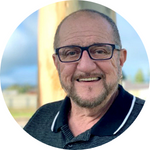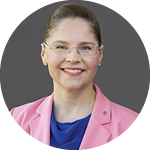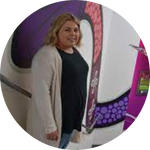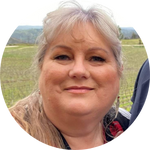Meet our RAP 2022 Steering Committee
Uncle David 'Tarnda' Copley
Adj Assoc Prof Elizabeth Dabars AM
Tahlia Johnson
Damian Rigney
Kate Warren

Uncle David 'Tarnda' Copley
In the past many organizations have viewed Reconciliation Action Plans (RAP) as a tick box in corporate accreditation.
RAP's are completed and then forgotten. Through my advisory work with the ANMF(SA) and from my time on the Council, I understood that the ANMF(SA) didn't want this situation.
The organization wanted a 'living document', that would serve its staff and members and allow the organization to engage with Indigenous organization, communities and health professionals/students.
I wanted to be part of this committee, not because of my expertise, but rather in order to assist the ANMF(SA) branch achieve its goal of a culturally safe place for all.

Adj Assoc Prof Elizabeth Dabars AM
Our Reconciliation Action Plan initiative aims to greatly extend our role and impact in making a very positive difference to the numbers of Aboriginal and Torres Strait Islander peoples employed within the health system, the ultimate hoped-for outcome being the vastly improved health and wellbeing of Indigenous communities everywhere. We firmly believe Aboriginal and Torres Strait Islander nurses and midwives should be part of curriculum and policy development at local, state and national levels.
The Reconciliation Action Plan is all about empowering our First Nations people with the tools – be it education, resources, enhanced opportunity – to stamp their imprint on the Australian health system so that it delivers optimal, equitable and culturally safe care for all.

Tahlia Johnson
Tahlia Johnson is a registered Midwife and is currently completing her honours through Flinders University and working in research with Aboriginal health projects.
Tahlia has chosen to be a part of the RAP steering group as she believes there is a lot more work to be done around reconciliation and wants to help drive that change being part of the group.

Damian Rigney
Damian was originally an Aboriginal health practitioner and has worked with several Aboriginal community health organisations within SA Health.
Damian has joined the RAP Steering committee as he believes it is important to improve the care nurses provide to Aboriginal people. It just provides the system with people that share the lived experience, Aboriginal people have a unique place in society.
Damian believes providing care appropriate to Aboriginal people is best done by Aboriginal people and will in turn provide better care and support for patients.

Kate Warren
Kate is a proud Wiradjuri woman originally from NSW and moved to SA as a nine year old. She is a Registered Nurse and has worked in acute care, tertiary education/research and primary health care spanning a career of nearly 40 years.
Kate is currently working in an Aboriginal Community Controlled Health Service and sees her life mission as increasing meaningful community leadership in health, hence her involvement in the development of the Reconciliation Action Plan.